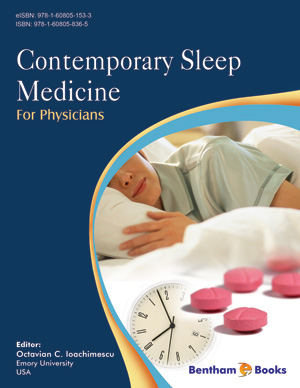Abstract
Suprachiasmatic nucleus is the master circadian clock that regulates various endogenous circadian rhythms. Light and social cues are important factors that help align the endogenous circadian rhythms to the 24 hour day. Circadian rhythm sleep disorders can be due to abnormalities in the endogenous circadian clock (“intrinsic disorders”) such as delayed sleep phase type, advanced sleep phase type, free running type, and irregular sleep wake rhythm type. Shift work or air travel leads to an artificial mismatch between the endogenous circadian clock and the external environment (“extrinsic disorders”) leading to shift work disorder and jet lag disorder. Individuals with circadian rhythm sleep disorders are presented with insomnia or excessive sleepiness or both.
These disorders are under recognized in the general population but they can affect a significant number of people if a the large number of shift workers and air travelers are considered. The symptoms may be misdiagnosed for other common sleep disorders such as sleep apnea or insomnia. Meticulous history and sleep diary data are integral tools in diagnosing CRSD. Actigraphs (activity monitors) may supplement the sleep diary data. In the past two decades major advances have been made in understanding the genetic basis of these disorders. Understanding the circadian principles has led to various therapeutic options such as phototherapy and exogenous melatonin.






















